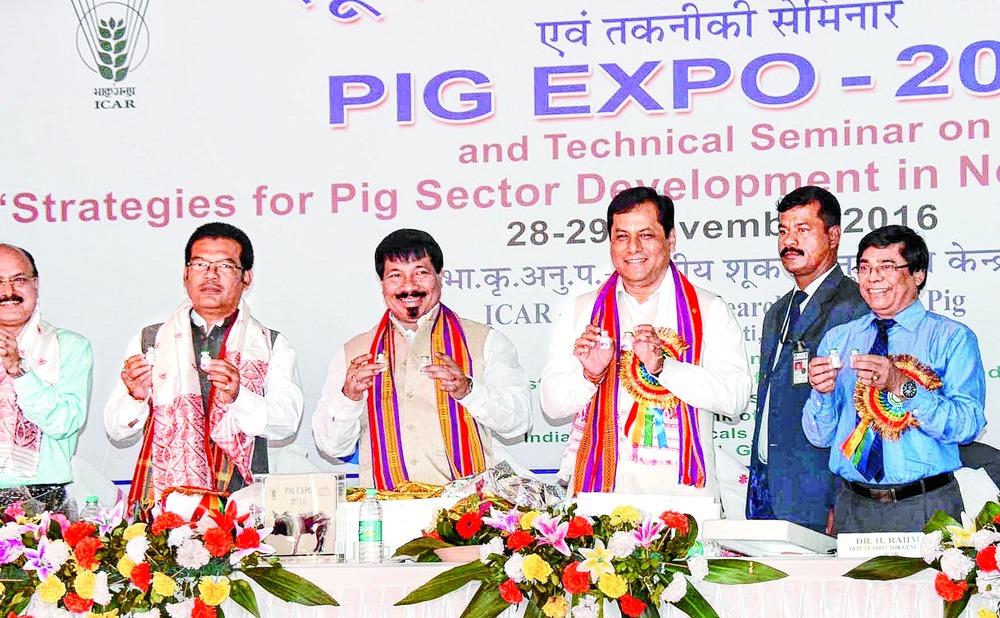
Guwahati, Nov. 28: Indian Immunologicals Limited today released a vaccine - Cysvax - for the first time to fight tapeworms in pigs.
The vaccine, released for global markets at a pig expo in the city organised by the ICAR-National Research Centre on Pig in Rani, also has the potential to significantly reduce the incidence of epilepsy in humans.
Assam chief minister Sarbananda Sonowal, who released the vaccine at the expo, said, "It is a huge achievement by the researchers." He said the government was planning to organise the piggery sector in a scientific way to promote it as an enterprise, which will bring employment and economic benefits.
Indian Immunologicals Limited - a wholly owned subsidiary of the National Dairy Development Board - collaborated with Marshall Lightowlers, a professor from University of Melbourne, Australia, and GALVmed (Global Alliance for Veterinary medicine) to develop the world's first vaccine - Cysvax - against pork tapeworm ( T. solium).
Indian Immunologicals Limited, which is the largest veterinary vaccine company in the country, obtained a licence to manufacture and market this product after conducting extensive field trials in India and many other countries. "This vaccine will be a boon to pig rearers in the Northeast, which has more than 50 per cent of the country's pig population," K. Anand Kumar, the managing director of the company, said.
The vaccine has been developed to fight cysticercosis, a parasitic disease caused by ingesting the eggs of the pork tapeworm, Taenia solium. It is a zoonotic parasite, involving pigs as intermediate hosts. Humans are usually infected by the ingestion of eggs present in undercooked pork, vegetables and greens that have been improperly washed. Cysts that develop in the central nervous system cause neuro-cysticercosis (NCC), one of the predominant reasons for epilepsy in humans.
WHO has designated cysticercosis as one of the 17 "neglected tropical diseases" worldwide. Open defecation and unhygienic pig rearing are the primary breeding grounds for tapeworm.
Ram Pratim Deka, a scientist at Food Safety and Zoonosis International Livestock Research Institute here, said, "Tapeworm is commonly found in pigs in the Northeast but exact prevalence of porcine cysticercosis is not well known. Qualitative study suggests that a large section of pig producers, pig/pork traders and consumers in the region are well aware of the tapeworm infestation and therefore, pigs affected by tapeworm are priced lesser than non-affected pigs and pork containing white cotton seed-like follicle is less preferred by consumers, causing economic loss to the farmers and pig/pork traders."











